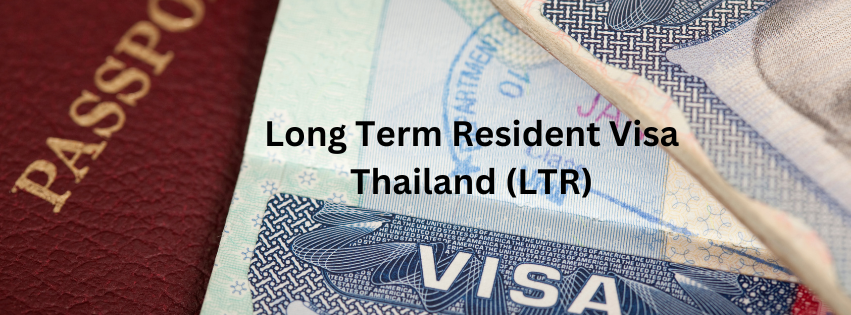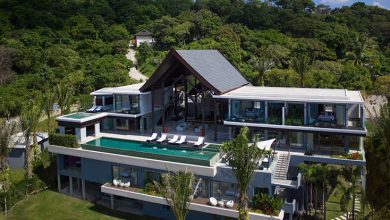Exploring Long-Term Visa Options in Thailand: A Comprehensive Guide

Thailand, a country renowned for its rich culture, stunning beaches, and vibrant cities, is a favorite destination for tourists, expatriates, and retirees. For those who wish to stay in the “Land of Smiles” for extended periods, securing a long term visa Thailand is an essential step.
This guide delves into the various long-term visa options available in Thailand, eligibility criteria, benefits, application processes, and tips for navigating Thai immigration regulations.
Why Choose a Long-Term Visa in Thailand?
A long-term visa offers the convenience of extended stays, reducing the need for frequent renewals or visa runs. It is ideal for:
- Retirees: Those looking to spend their golden years in a serene and affordable environment.
- Digital Nomads: Individuals working remotely and seeking a cost-effective yet vibrant base.
- Investors and Entrepreneurs: Business professionals investing in Thailand’s growing economy.
- Students and Educators: Those pursuing educational or teaching opportunities.
Types of Long-Term Visas in Thailand
1. Retirement Visa (Non-Immigrant O or OA)
The Retirement Visa is tailored for individuals aged 50 and above who wish to reside in Thailand for an extended period.
Eligibility:
- Must be 50 years or older.
- Proof of financial stability: A minimum of 800,000 THB in a Thai bank account or a monthly income of at least 65,000 THB.
Validity and Extensions:
- Initially valid for one year, renewable annually.
Key Benefits:
- Multiple re-entry options.
- Flexibility for retirees to enjoy Thailand’s lifestyle.
2. Thai Elite Visa
The Thailand Privilege Card, commonly known as the Thai Elite Visa, offers a premium long-term stay option.
Eligibility:
- Open to individuals of any age with financial means to pay membership fees.
Options and Fees:
- Membership starts from 600,000 THB for a five-year visa to 2.14 million THB for a 20-year visa.
Key Benefits:
- No requirement for financial proof or annual extensions.
- VIP services, such as expedited airport immigration and exclusive healthcare benefits.
3. Long-Term Resident (LTR) Visa
Introduced to attract skilled professionals, retirees, and wealthy global citizens, the LTR Visa offers a 10-year residency option.
Eligibility Categories:
- Wealthy individuals with at least $1 million in assets.
- Retirees with an annual income of $80,000 or more.
- Skilled professionals in target industries.
Key Benefits:
- Reduced personal income tax rate.
- Work authorization included for eligible applicants.
4. Business Visa (Non-Immigrant B)
The Business Visa is designed for entrepreneurs, investors, and professionals working in Thailand.
Eligibility:
- A formal invitation or job offer from a Thai company.
- Proof of business activities or investments.
Validity and Extensions:
- Initially valid for 90 days, extendable up to one year.
Key Benefits:
- Opportunity to work legally in Thailand.
- Pathway to long-term residency through work permits.
5. Education Visa (Non-Immigrant ED)
The Education Visa allows foreigners to reside in Thailand while pursuing academic or vocational courses.
Eligibility:
- Enrollment in a Thai educational institution.
- Proof of course payment and study plans.
Validity and Extensions:
- Initially valid for 90 days, renewable every 90 days up to one year.
Key Benefits:
- Ideal for students, language learners, and professionals enhancing their skills.
6. Spouse Visa (Non-Immigrant O)
This visa is available for individuals married to Thai citizens.
Eligibility:
- Proof of a registered marriage.
- Financial stability: Minimum income of 40,000 THB per month or 400,000 THB in a Thai bank account.
Validity and Extensions:
- One-year validity with annual renewals.
Key Benefits:
- Simplifies the process of residing with a Thai spouse.
Application Process for Long-Term Visas
The process for obtaining a long-term visa in Thailand generally involves these steps:
- Determine Visa Type:
- Choose the visa that best suits your purpose (retirement, business, etc.).
- Prepare Documents:
- Passport with six months of validity.
- Completed visa application form.
- Financial proof and additional documents specific to the visa type.
- Submit Application:
- Apply at a Thai embassy or consulate in your home country or a nearby country.
- Pay Fees:
- Visa fees vary depending on the type and duration of the visa.
- Await Approval:
- Processing times range from a few days to a few weeks.
Key Benefits of Long-Term Visas
- Stability and Flexibility:
- Live in Thailand without frequent renewals or visa runs.
- Pathway to Permanent Residency:
- Some long-term visas can lead to permanent residency or Thai citizenship.
- Access to Healthcare and Banking:
- Open Thai bank accounts and access the country’s healthcare system.
- Legal Work Opportunities:
- Certain visas include work authorization, enabling legal employment.
- Family Inclusion:
- Many visas allow dependents to accompany the primary visa holder.
Tips for Maintaining Long-Term Visas
- Comply with Reporting Requirements:
- Notify Thai immigration every 90 days of your current address (90-day reporting).
- Renew on Time:
- Apply for renewals well before your visa expires to avoid complications.
- Follow Financial Requirements:
- Keep sufficient funds in your Thai bank account to meet renewal conditions.
- Stay Updated on Policies:
- Thai immigration rules may change; regularly check for updates.
Frequently Asked Questions
1. Can I work in Thailand with a long-term visa?
- Yes, with specific visas like the Business Visa or LTR Visa, work permits are included or can be obtained.
2. Can I switch visa types while in Thailand?
- In many cases, visa conversions are possible through Thai immigration offices.
3. What happens if I overstay my visa?
- Overstaying incurs daily fines and may lead to blacklisting for repeated violations.
4. Can I include my family in a long-term visa application?
- Many visas, like the Retirement Visa and LTR Visa, allow dependents to be included.
Conclusion
Obtaining a long-term visa for Thailand opens up endless opportunities to experience the country’s vibrant culture, natural beauty, and economic potential. Whether you’re retiring, working, studying, or simply exploring, there’s a long-term visa tailored to your needs.
Understanding your options and adhering to Thai immigration regulations will ensure a seamless and enjoyable stay in one of the world’s most enchanting destinations. Take the first step today, and embark on your long-term journey in Thailand!



